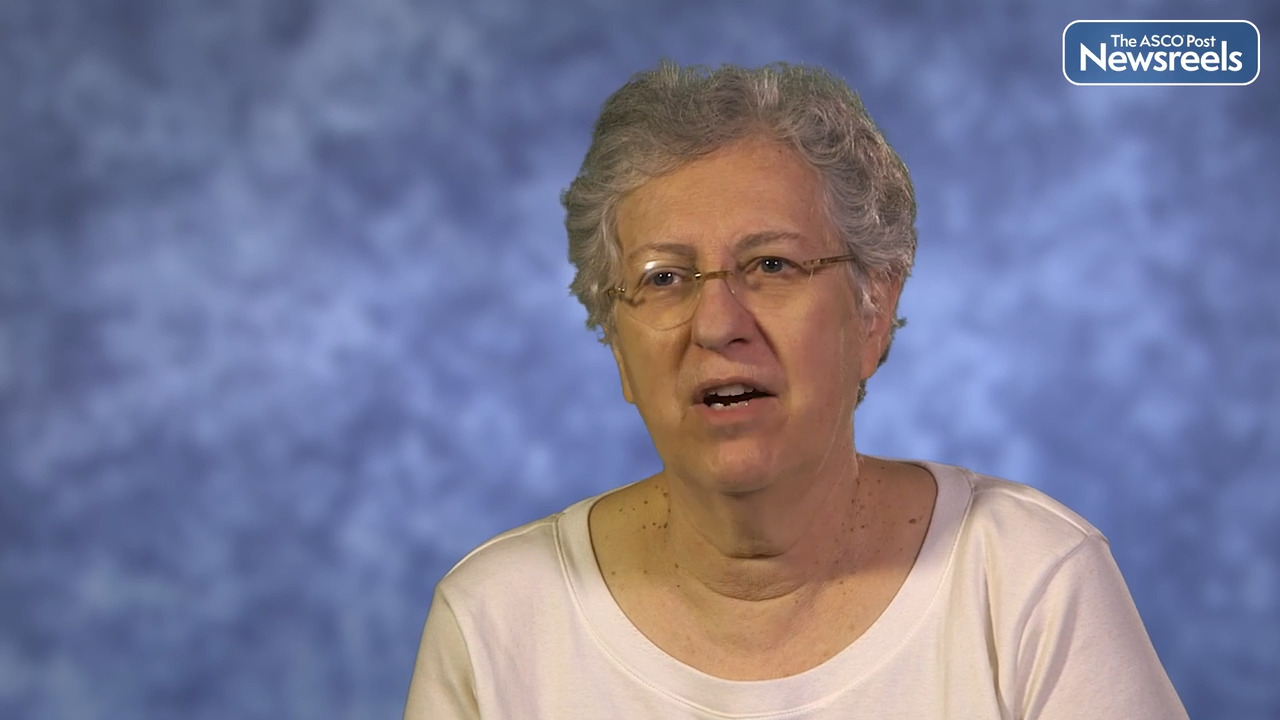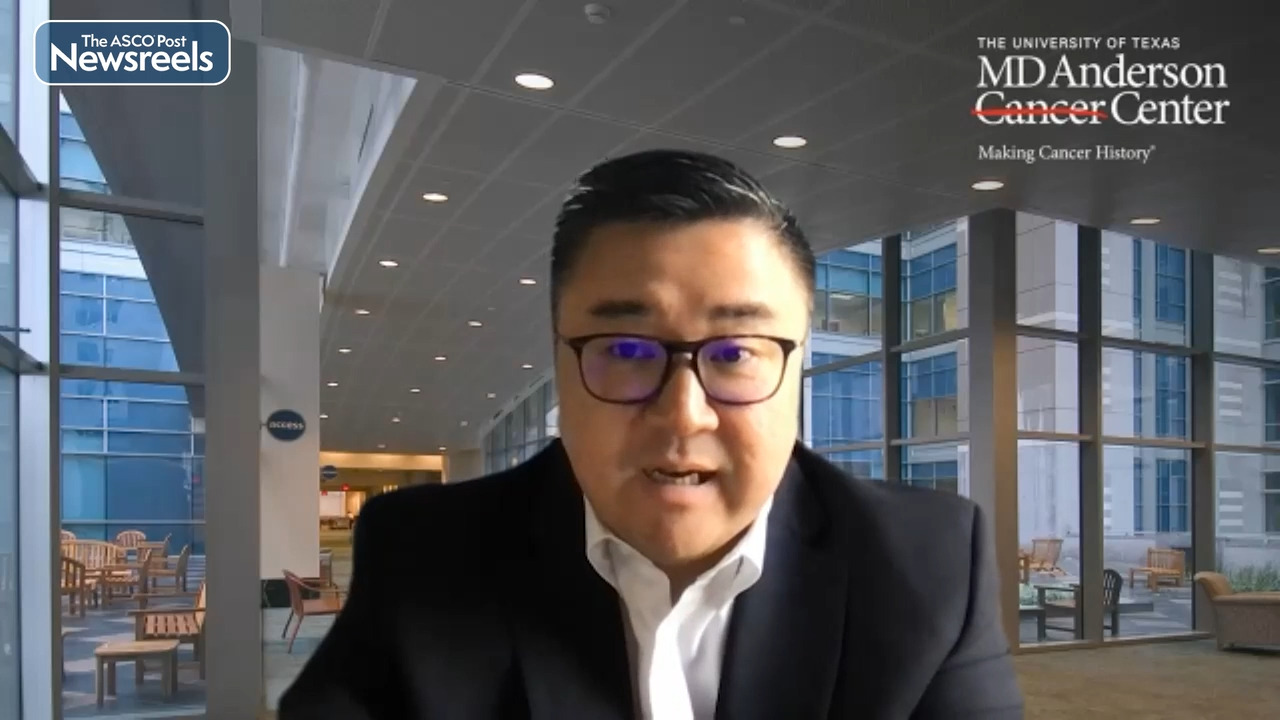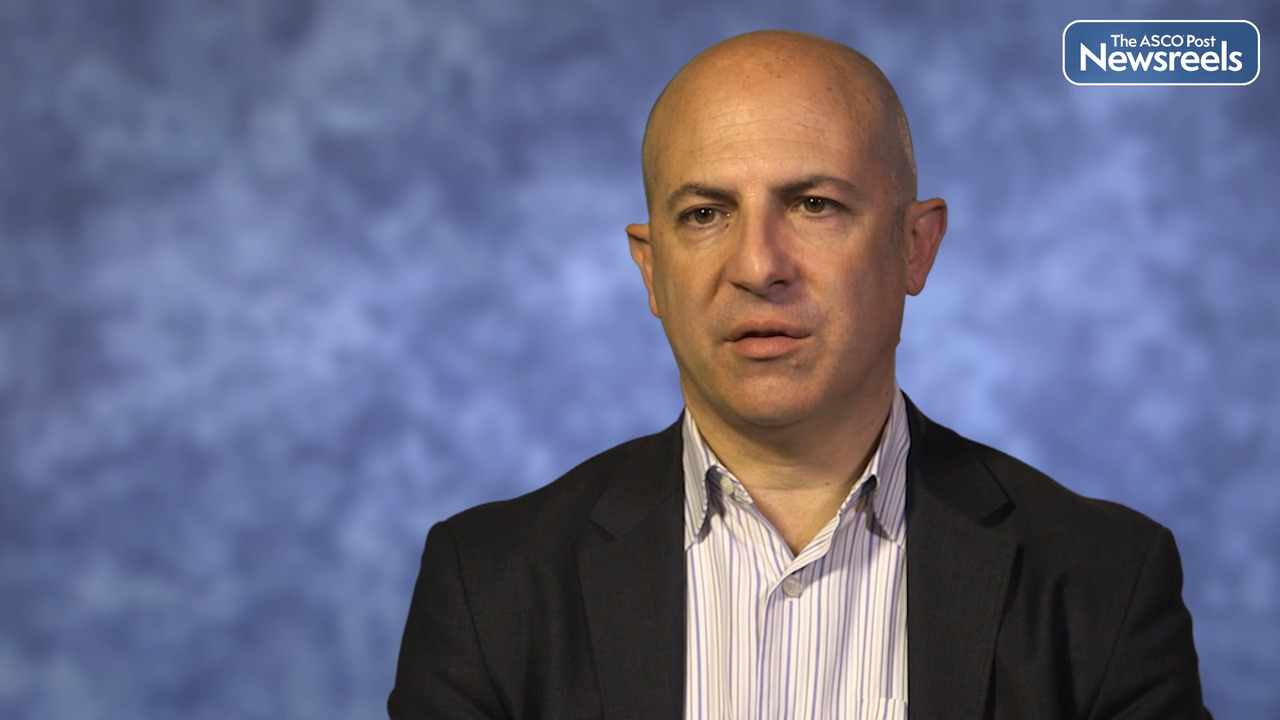Vivek Subbiah, MD, on Designing Clinical Trials for Precision Oncology
AACR Annual Meeting 2022
Vivek Subbiah, MD, of The University of Texas MD Anderson Cancer Center, talks about innovative design of clinical studies that may help demonstrate clinical benefit in precision medicine and advance treatment to deliver the right intervention to the right patient at the right time (Abstract DC06).
The ASCO Post Staff
Meenakshi Anurag, PhD, of Baylor College of Medicine, discusses results from the ALTERNATE trial, which showed the combination of anastrozole plus fulvestrant was superior to either drug alone in inhibiting tumor proliferation in postmenopausal women with early-stage luminal B breast cancer (Abstract CT026).
The ASCO Post Staff
Patricia M. LoRusso, DO, of the Yale University School of Medicine, discusses how patients may benefit in the coming decade from discoveries about agents that target KRAS, and how important the approval of sotorasib turned out to be, as well as other agents in the research pipeline. Dr. LoRusso also talks about the scientific advances in tackling inhibition (Abstract SY20).
The ASCO Post Staff
Timothy A. Yap, MBBS, PhD, of The University of Texas MD Anderson Cancer Center, discusses results from the PETRA study, a first-in-class, first-in-human trial of the next-generation PARP1-selective inhibitor AZD5305 in patients with BRCA1/2, PALB2, or RAD51C/D mutations in advanced or metastatic ovarian cancer, HER2-negative breast cancer, pancreatic, or prostate cancer. Target engagement was demonstrated across all dose levels, and antitumor activity was observed in selected tumor and molecular subtypes.
The ASCO Post Staff
Zev Wainberg, MD, of the University of California, Los Angeles Medical Center, discusses preliminary data on the safety and efficacy of TTX-030, an anti-CD39 antibody, in combination with budigalimab and FOLFOX for the first-line treatment of locally advanced or metastatic gastric or gastroesophageal junction adenocarcinoma. The study suggests the regimen may prove to be of benefit as a first-line treatment, regardless of combined positive score status (Abstract CT015).
The ASCO Post Staff
David A. Barbie, MD, of Dana-Farber Cancer Institute, discusses his laboratory’s studies, showing that malignant pleural mesothelioma, an inflamed cancer type with marginal response to immune checkpoint blockade, demonstrated high tumor cell STING expression and response to STING agonists in combination with natural killer cell therapies ex vivo. STING is the tumor cell stimulator of interferon genes (Abstract 4168).





